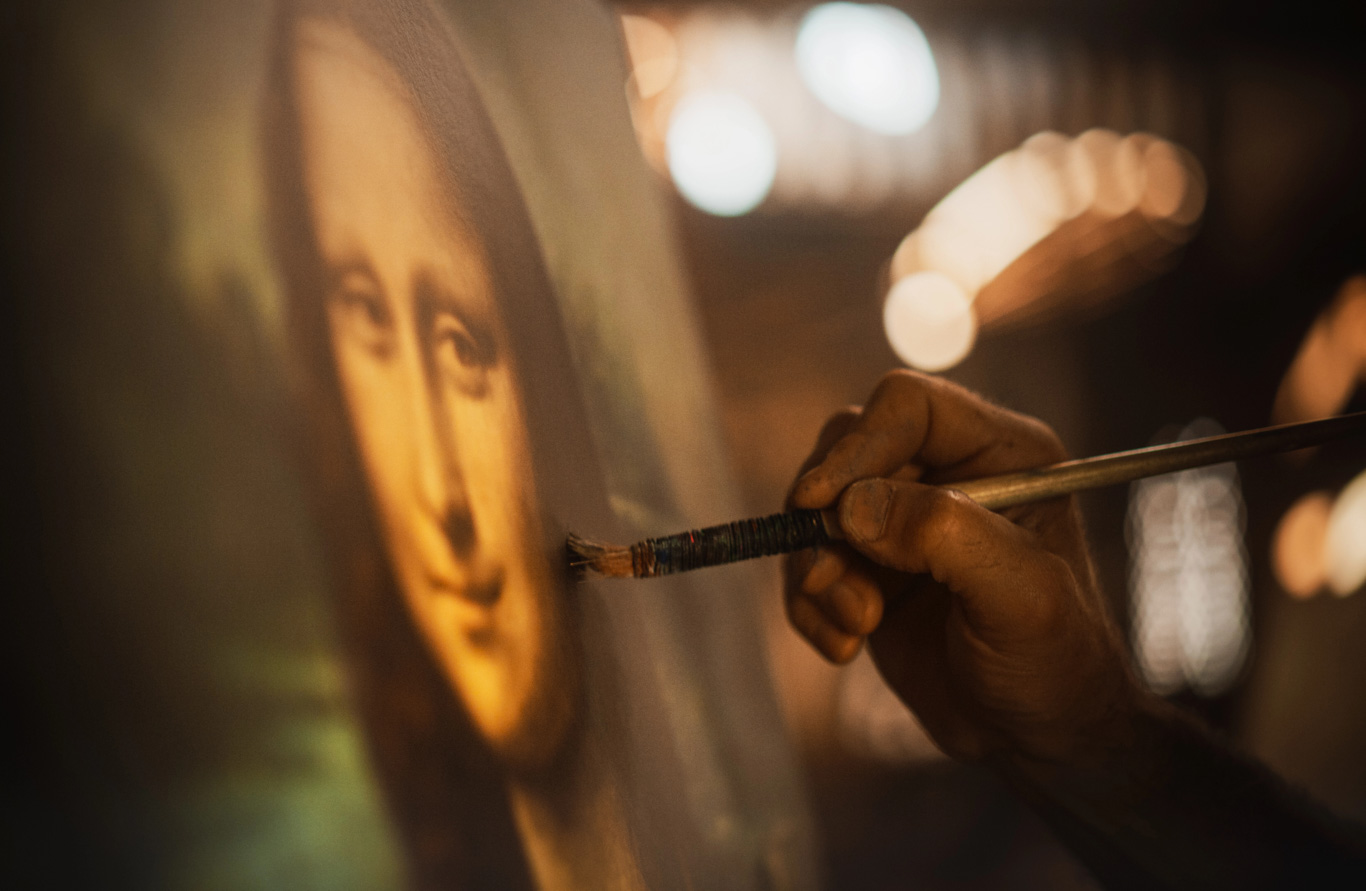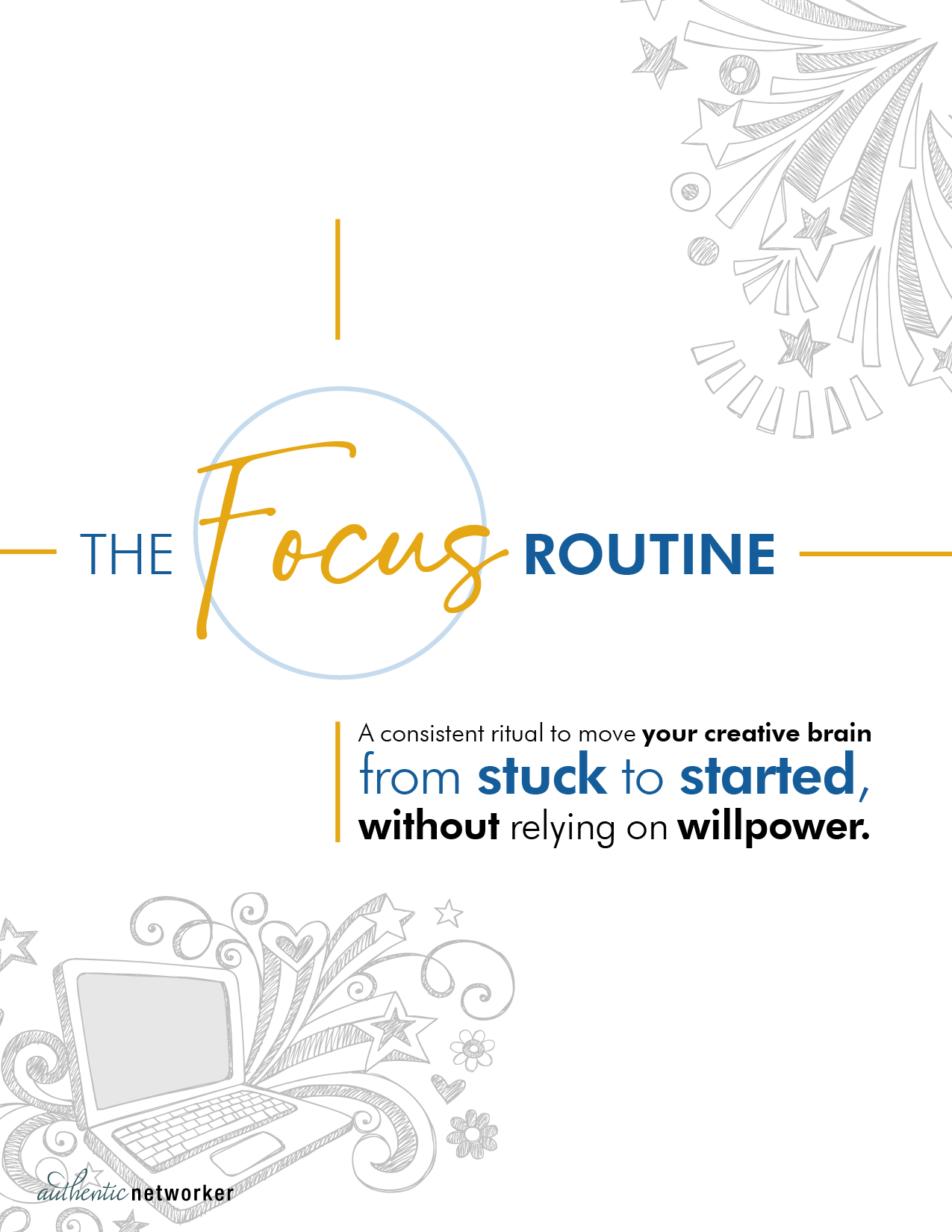Procrastinators Who Changed the World


In this first Transition Space episode, Mia takes a deeply honest, absurdly funny look at why getting started is so hard. If you've ever stalled on something that matters, here’s your reminder it doesn’t mean anything’s wrong with you. Procrastination and brilliance can, and do, coexist.
Think procrastination means you’re failing? History—and this episode—beg to differ.
In this first episode of Transition Space , we take a deeply honest, weirdly funny look at why getting started is so hard—and why that doesn’t mean anything’s wrong with you. If you've ever felt behind on something that still really matters to you, this is your reminder that procrastination and brilliance can absolutely coexist.
We visit the chaos brains of history’s great procrastinators (hi, Leonardo), tell the story of a law project I never submitted (RIP), and dig into the neuroscience of what’s actually happening when you freeze before starting.
You’ll hear about ADHD, perfectionism, emotion regulation, and the strange things we Google instead of writing. More importantly, you’ll hear a gentle invitation to start in the way your brain can actually handle.
And maybe, just maybe, you’ll finally make peace with your half-done draft.
------------------
🌟 Ready to stop doomscrolling and actually start?
Download my free Focus Routine — a cozy, ADHD-friendly ritual that gives your brain a gentle nudge into motion.
✨ Like a warm-up for your to-do list.
👉 authenticnetworker.com/focusroutine
------------------
👯 Need a body double to wrestle your resistance?
Come cowork with us inside Wavelength — the virtual community where solopreneurs log in, get focused, and actually finish the thing.
Yes, even that thing.
✨ Structure. Support. Snacks encouraged.
👉 authenticnetworker.com/wavelength
------------------
📚 Science, but make it emotionally validating
- Pychyl, T. A., & Sirois, F. M. (2016). Procrastination, emotion regulation, and well-being . In Sirois, F. M., & Pychyl, T. A. (Eds.), Procrastination, Health, and Well-Being . Academic Press.
- Sirois, F. M. (2014). Procrastination and stress: Exploring the role of self-compassion . Self and Identity, 13 (2), 128–145.
- Blunt, A. K., & Pychyl, T. A. (2000). Task aversiveness and procrastination: A multi-dimensional approach to task aversiveness across stages of personal projects. Personality and Individual Differences, 28 (1), 153–167.
- Amabile, T. M., Barsade, S. G., Mueller, J. S., & Staw, B. M. (2005). Affect and creativity at work . Administrative Science Quarterly, 50 (3), 367–403.
Episode Keywords:
ADHD, executive function, creative resistance, solopreneur productivity, perfectionism, procrastination, body doubling, focus routine, neurodivergent strategies, getting started, meaningful work, small wins, progress principle, transition rituals, motivational podcast, origin story, how to stop procrastinating, how to get started, solopreneur, work from home, virtual coworking, ADHD inertia, ADHD paralysis, pathological demand avoidance, PDA, AuDHD, focus for neurodivergent brains, transition rituals, task paralysis
Have you ever put something off for so long you could have finished it four times in the time you spent dreading it? Today, I'm sharing what I learned from sea otters, naked French novelists, and a 16-year-old version of me who absolutely did not get the assignment.
3, 2, 1. Let's go. Welcome to Transition Space, your gateway from thinking to doing. I'm Mia Torr. If you're called to create meaningful work, use this podcast as part of your starting ritual. Make your coffee and clear your desk while you listen, and we'll hang out as you ease into focused flow. While you create your space, I'll help you entertain the transition. Come on in.
Today on Transition Space, procrastination icons, round numbers, and a better way to begin.
Well, hello, fellow avoider of beginnings. I'm glad you made it here to the part before the part. Which probably means you're on a side quest or you've got something brewing. A spark of an idea, maybe, or a draft, or a maybe-one-day project. Whatever it is, it's something you care about that keeps getting stuck at the starting line.
Whether you've been circling the same idea for weeks or procrastinating so hard you've somehow deep-cleaned your fridge, I promise you're in the right place.
You might be wondering who gave me the mic. I'm Mia, and I am a procrastinator. No, really, I procrastinate like it's my job.
To be honest with you, I am very committed to not getting started. I've spent years circling brilliant ideas like a suspicious cat. I have dodged deadlines with the agility of a caffeinated squirrel. I've completed elaborate craft projects and actually trained to run marathons just to avoid writing a single paragraph.
So naturally, I created a podcast about starting work... in order to start my work. Desperate times, desperate measures. You know how it goes.
What I ended up with is this thing you're listening to now. Transition Space is like having a friend to hang out with you in those moments when you want to do the work but you just aren't feeling it yet, when all you want to do is anything but the work. I'll be here to keep you company, tell you stories, and confess my ADHD moments without judgment. I see you. I probably am you. I'll meet you exactly where you are, and we can move toward the starting line together.
Before we talk about our unfinished work, let's take a walk through the Procrastination Hall of Fame. The chronic stallers, the delayed greats, the most brilliant chaos brains who ever changed the world. Eventually.
Leonardo da Vinci took over 16 years to finish painting the Mona Lisa. And then he didn't finish it. He just stopped, walked away, called it done. Ish.
This was 100% on brand for him. This man left behind over 7000 pages of anatomical sketches, bizarre mirror-written thoughts, and countless half-baked ideas. He'd be painting and then suddenly switch to designing flying machines, or dissecting cadavers, or inventing early scuba deer. His mind moved with ferocious curiosity and zero concern for completion. He was like a brilliant chaos gremlin, curious about everything, but committed to very little. Honestly, he was that guy in your college group project who shows up with espresso, redesigns the whole plan mid-meeting, introduces a medieval font for no reason, and then ghosts the week before it's due.
But what he left behind was breathtaking. Unfinished, sure, but transcendent. He didn't even finish the freaking thing. And half a millennium later, millions of people are still lining up to look at it through bulletproof glass. That's the power of a masterpiece, even mid-process.
So yeah, maybe your rough draft's not so tragic.
Over in France, Victor Hugo was given a contract to write the Hunchback of Notre Dame. He enthusiastically accepted it and then did absolutely nothing. For years.
He procrastinated so thoroughly his publisher eventually threatened to cancel the contract and confiscate his cash advance. That landed the money threat hammered the message home.
In response, Hugo took a beautifully unhinged approach. He locked away all his formal clothes. He literally had his valet hide them so he couldn't go outside. Then he wrapped himself in a shawl and refused to get dressed until the novel was done.
I need to be clear here. He was naked under that shawl. Not metaphorically, literally, writing the Hunchback of Notre Dame in the nude, swaddled in sheer panic and cash incentive. He wrote furiously, sometimes on the walls. And he finished the entire thing in six months.
He wrote a masterpiece while dressed like a haunted grandmother. With a deadline. He made literary history done up like a fever dream. And honestly, may we all someday finish a project with that level of theatrical commitment.
Douglas Adams missed every deadline for the Hitchhiker's Guide to the Galaxy. Every single one. He's known for his iconic quote, I love deadlines. I love the whooshing sound they make as they go by. There's a really cute print of this on Etsy, by the way. Convince me whether I should buy it or not. I still can't decide.
At one point, his editor physically locked him in a hotel room to get him to finish a manuscript, and then he turned it in at the last second, finished only by the skin of his teeth and the grace of caffeine. Possibly tea. Possibly the entire UK supply of tea.
He was a master of whimsy and also of what psychologists might call catastrophic delay. But out of that chaos came one of the funniest, most beloved sci-fi stories ever written. He wrote like a man being chased by consequence. And we got a galaxy out of it.
So if you've ever delayed a project, or sabotaged your own momentum, or stared at a blank page like it owes you money, congratulations. You just might be on the track to make something extraordinary. Eventually.
Here's how I think it goes. You sit down to do the thing. You really mean to do the thing. But first, maybe you should put away your craft supplies. Or finally book that dentist appointment. Or honor Douglas Adams by making a pot of tea. But you don't actually get to any of that.
You open your laptop and then blink at the page you swore you'd start yesterday. You start to type something productive, but your brain autocompletes to cute sea otters holding hands. You do not fight it. You land on a video of two sea otters floating gently in tandem, paw in paw, like fuzzy little relationship goals. You're suddenly, utterly, invested. Wait, is that a tear in your eye?
You glance at the time. It's 9:12, which feels wrong. So now you'll just wait until 9:30, because that seems like a reasonable, round, cosmically ordained time to begin. And in the meantime, you scroll. You spiral. You reassure yourself that you're almost ready. You just need to finish this one deeply important otter moment first. Look, I don't know what I'm doing with my life, but this otter is juggling rocks while blowing air into its armpit and carrying its favorite rock like a weaponized purse. So maybe we're all doing our best.
That task? Still waiting. I fully get it. I'm right there with you.
When I was 16, I had a research project in my law class. I loved this class, and I loved the topic. I had ideas. I cared. But every time I sat down to write, my chest tightened and my brain fogged up. It felt like I was trying to reach the starting line through a vat of molasses and existential dread. Every time I tried, the work felt like touching a hot stove.
So I played Minesweeper and I shuffled books around. In the end, I handed in nothing.
My grade dropped by 25 points. It didn't feel like laziness or carelessness. It was more like I had totally short-circuited. I had never hit a mental wall like that before. I didn't have terms like PDA or ADHD paralysis at that time. All I knew was that my teachers and my parents said I was a disappointment and I was wasting my potential. So, for a long time, I believed that meant something was wrong with me.
I kept asking myself why couldn't I begin even when I wanted to? It took years and an actual diagnosis before I learned that what I was dealing with wasn't a personal flaw. It was a pattern. A deeply human one.
I wish I could go back and hug that 16-year-old version of me and tell her what I've learned since.
Procrastination is a form of emotion regulation. I thought I was avoiding the task. But what I was avoiding was navigating the emotions the task stirred up.
Procrastination tends to show up when a task feels overwhelming, ambiguous, emotionally loaded, or tethered to your sense of identity in a way that magnifies the pressure. It's your nervous system sending a clear message. This doesn't feel safe yet.
A few decades ago, psychologists and procrastination experts Tim Pychyl and Fuchsia Sirois wanted to understand the connection between emotions and procrastination. So they asked people to keep daily journals recording not just what they did, but how they felt. And the results were striking.
The more discomfort people felt, the more likely they were to delay. It was a form of self-protection, like a kind of emotional triage.
So if you've been stuck, there's nothing defective about your motivation. Your system is responding wisely to internal resistance. You're adapting to discomfort in the most efficient way your body knows how.
And that matters- because it means you can work with it. You can shift the conditions. You can create cues that tell your nervous system, hey, this is familiar. You are safe. This is manageable. This is known.
Tiny rituals, predictable rhythms. A small invitation toward motion. That's how you begin to build momentum through gentleness and structure. We don't need to beat ourselves up anymore.
Every episode of Transition Space is designed to be one of those tiny rituals. Imagine it like a stage direction or a flipped switch. I will share with you a moment to help you shift from fog to focus without shame or force. Some days it might be a breath, other days a rally cry. And sometimes just a human voice to remind you you aren't alone in this.
This is not meant to be a show about forcing productivity. Because that doesn't work for me. And I bet it doesn't work for you either. It's a space for you to begin in whatever way your brain, heart, and body are ready for today.
Let me be really clear. You are not more valuable when you produce things. You don't need to be productive to have self-worth. You don't need to earn your rest or prove your worth through output. This space exists for starting when you want to, how you're able to.
And even if today's not the day, you're still welcome here. This is not a club for the hyperproductive. This is a refuge for those of us who are quietly trying.
I promise you are not broken or a disappointment or a waste of potential. Forget the people who have said that to you. You are not too late. You're a human being with a creative mind, a tender nervous system, and a long, unfinished to-do list.
Procrastination doesn't disqualify you from greatness. You are in remarkable company.
Da Vinci took his time. Hugo panicked in style. Adams rode the spiral. And you? You made it here. Which means today's a beautiful day to begin.
Whether you're making coffee or clearing your desk right now, ask yourself, what if procrastination is part of the process, not a detour from it? Visit authenticnetworker.com/transitionspace and tell me, what small, imperfect, messy thing will you begin today? I'd love to hear your answer.
This is Transition Space, where you clear your path from thinking to doing. I'm Mia, and together we've shaped what's possible. Now it's your turn to make it real.


